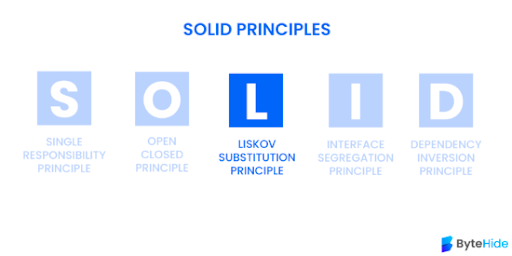Unlocking the Secrets of SOLID Principles for Unity Developers
Introduction:
In software development, maintaining codebases can quickly become a daunting task as projects grow in complexity. With a clear set of guidelines, codebases can become manageable, easier to understand, and prone to bugs. This is where the SOLID principles of Unity come into play. Inspired by the SOLID principles of object-oriented programming, these principles provide guidelines to help developers write clean, maintainable, and extensible Unity code. This article will explore each of the SOLID principles in Unity development and discuss their importance in building robust applications.
- Single Responsibility Principle (SRP)
The Single Responsibility Principle states that a class or module should have only one reason to change. This means keeping your scripts focused on a single task or responsibility in Unity. By adhering to SRP, we achieve better code organization and avoid creating monolithic scripts that are difficult to maintain. Each script should encapsulate a specific functionality, making it easier to understand, test, and modify.
- Open-Closed Principle (OCP)
The Open-Closed Principle emphasizes that classes should be open for extension but closed for modification. In Unity, this means designing your code to allow for easy expansion without requiring modifications to existing code. We can create flexible and modular systems by using interfaces, abstract classes, and inheritance. This approach enables us to add or modify new features without affecting the core functionality, reducing the risk of introducing bugs.
- Liskov Substitution Principle (LSP)
The Liskov Substitution Principle states that objects of a superclass should be replaceable with objects of its subclasses without affecting the correctness of the program. In Unity, this principle encourages using polymorphism and interfaces to ensure that derived classes can be seamlessly substituted for their base classes. By adhering to LSP, we can write more flexible, extensible, and easy-to-maintain code.
- Interface Segregation Principle (ISP)
The Interface Segregation Principle promotes the idea that clients should not be pushed to depend on interfaces they do not use. In Unity, this principle encourages the creation of lean interfaces that contain only the necessary methods for a specific client. By avoiding bloated interfaces, we prevent unnecessary dependencies and ensure that each class only depends on the functionality it requires. This leads to cleaner and more decoupled codebases, making modifying and extending our code easier.
- Dependency Inversion Principle (DIP)
The Dependency Inversion Principle states that high-level modules should not rely on low-level modules; both should depend on abstractions. In Unity, this principle encourages using interfaces or abstract classes to define dependencies rather than relying on concrete implementations. By doing so, we can decouple our code and make it more modular, testable, and flexible. This principle also promotes dependency injection, allowing us to swap implementations and improve code maintainability easily.
- Single Responsibility Principle (SRP):
- Encourages code modularity and reusability by separating concerns into distinct classes or components.
- It helps write unit tests for individual responsibilities, making verifying and validating behavior easier.
- Enhances code readability and maintainability by reducing complexity and making localized changes.
- Open-Closed Principle (OCP):
- Allows for adding new functionality without modifying existing code, reducing the risk of introducing bugs.
- Promotes code extensibility and scalability by providing well-defined extension points through interfaces and abstract classes.
- Enables dependency injection and inversion of control, facilitating loose coupling between components.
- Liskov Substitution Principle (LSP):
- Ensures that derived classes can be used interchangeably with their base classes without affecting the correctness of the program.
- Promotes code reuse and polymorphism, allowing for flexible behavior through interfaces or abstract classes.
- It helps maintain the contract or interface compatibility when implementing new classes or inheriting from existing ones.
- Interface Segregation Principle (ISP):
- It avoids the problem of bloated interfaces by breaking them down into smaller and more focused interfaces.
- Reduces the impact of changes in one interface on unrelated components that don’t depend on those changes.
- Allows clients to depend only on the specific methods or properties they need, enhancing code maintainability and reducing coupling.
- Dependency Inversion Principle (DIP):
- Inverts traditional dependencies by depending on abstractions rather than concrete implementations.
- Facilitates replacing dependencies, making code more flexible and adaptable to changes.
- Enables mock objects or test doubles, simplifying unit testing and improving code testability.
It’s important to note that the SOLID principles of Unity are not isolated concepts but work together to create a solid foundation for building robust, maintainable, and extensible code. These principles can improve code quality, easier collaboration among developers, and enhance software development practices.
Conclusion:
By embracing the SOLID principles of Unity, developers can build codebases that are easier to understand, maintain, and extend. These principles provide a set of guidelines that promote clean architecture, decoupling of code, and flexibility. By applying SRP, OCP, LSP, ISP, and DIP, we can create robust and scalable Unity applications that are less prone to bugs and easier to modify.
Remember, these principles are not strict rules but guidelines to help structure your codebase. It’s essential to strike a balance between adhering to these principles and considering the specific needs of your project. By consciously applying the SOLID principles of Unity, you can elevate your code quality and create software that stands the test of time.
For more details, see https://bleedingedge.studio/blog/

.jpg)
.png)

Comments
Post a Comment